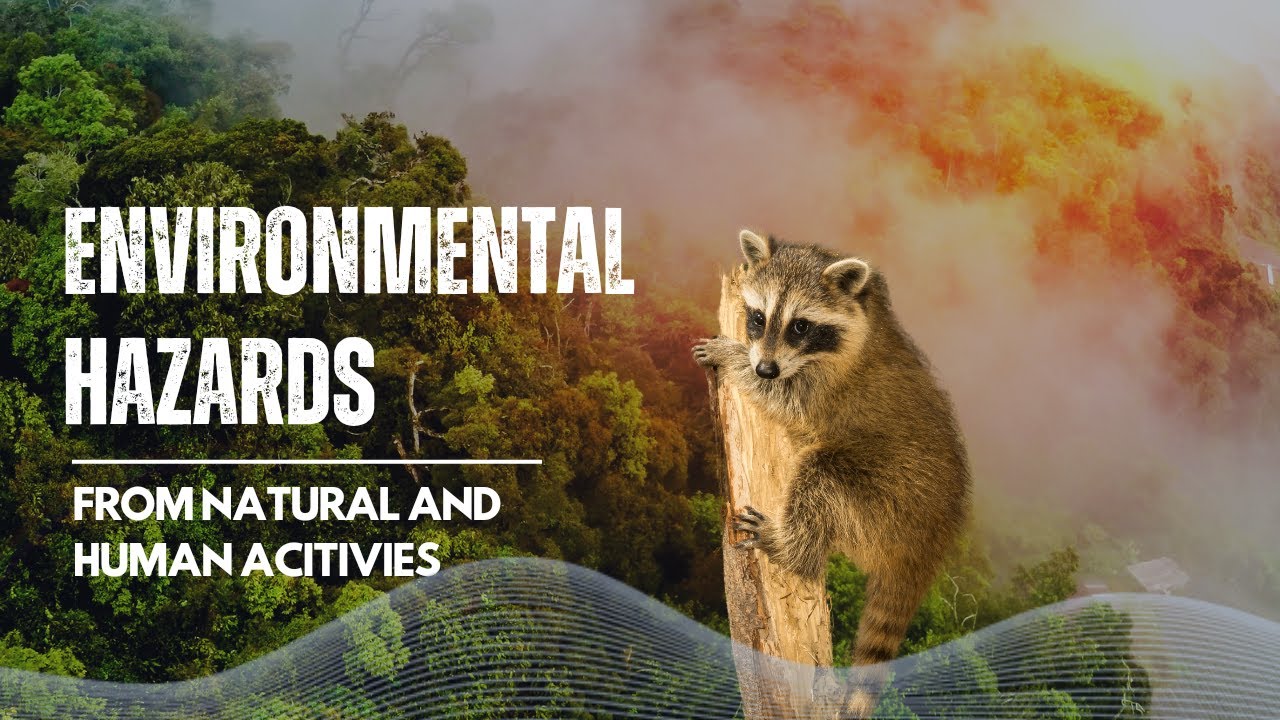Pengaruh Manusia terhadap Ekosistem dan Konservasi Keanekaragaman Hayati@gururatna
Summary
TLDRThis video highlights the significant impact of human activities on ecosystems, focusing on deforestation, pollution, monoculture farming, and climate change. It stresses the importance of biodiversity conservation to maintain ecosystem balance and safeguard natural resources. Conservation methods, both in situ (e.g., protected areas) and ex situ (e.g., zoos, botanical gardens), are essential for preserving species and habitats. The video emphasizes Indonesia's responsibility in managing its rich biodiversity through sustainable practices and public awareness to ensure its natural wealth remains sustainable for future generations.
Takeaways
- 😀 Humans have the greatest intellectual and technological power, which significantly impacts the balance of ecosystems.
- 🌱 Human activities, such as monoculture farming, contribute to biodiversity loss by replacing local species with a single crop variety.
- 🌳 Deforestation disrupts ecosystems by isolating plant and animal populations and causing soil erosion, which can lead to flooding.
- 🚗 Pollution from human activities, like motorized vehicles and waste disposal, contaminates water, air, and soil, threatening ecosystem health.
- 🔥 Climate change, primarily caused by burning fossil fuels, leads to extreme weather events like floods, droughts, and heatwaves, harming the environment.
- 🌊 Rising sea levels due to global warming endanger small islands and coastal areas, further exacerbating environmental challenges.
- 🌍 Biodiversity conservation is essential for maintaining ecosystem balance, regulating populations, and supporting vital ecological services.
- 💰 Biodiversity contributes to economic sectors like agriculture, fisheries, and ecotourism, offering sustainable resources for human welfare.
- 🌿 In situ conservation protects biodiversity within natural habitats, ensuring that species interact naturally with their environment.
- 🦏 Ex situ conservation involves protecting species outside their natural habitats, often in controlled settings like zoos and botanical gardens.
- 🇮🇩 Indonesia has a crucial responsibility to preserve its rich biodiversity and natural resources for future generations through ongoing conservation efforts.
Q & A
How do human activities impact biodiversity?
-Human activities such as deforestation, monoculture farming, pollution, and the burning of fossil fuels significantly impact biodiversity. These actions disrupt ecosystems, reduce species diversity, and contribute to environmental degradation.
What is monoculture farming, and how does it affect biodiversity?
-Monoculture farming is the practice of growing one type of plant over large areas. This reduces biodiversity by replacing native species with a single crop, which affects local ecosystems and makes them more vulnerable to pests and diseases.
Why is deforestation harmful to ecosystems?
-Deforestation destroys habitats, limits the movement of animals, and reduces the biodiversity of an area. It also contributes to soil erosion, decreases soil fertility, and increases the risk of floods.
How does pollution affect ecosystems?
-Pollution introduces toxic substances into ecosystems, disrupting the balance of nature. It harms plants, animals, and microorganisms, leading to a decrease in biodiversity and damaging ecosystems' ability to provide essential resources.
What is climate change, and what impact does it have on biodiversity?
-Climate change refers to long-term changes in temperature and weather patterns, largely caused by human activities like burning fossil fuels. It leads to rising temperatures, extreme weather events, and sea level rise, which threaten ecosystems and increase the risk of species extinction.
How can human actions contribute to global warming?
-Human activities, particularly the burning of fossil fuels like coal, oil, and gas, release carbon dioxide and other greenhouse gases into the atmosphere. This contributes to global warming, which leads to climate change and negatively impacts ecosystems.
What are the two main methods of biodiversity conservation?
-The two main methods of biodiversity conservation are in-situ and ex-situ conservation. In-situ conservation protects biodiversity in its natural habitat, while ex-situ conservation involves protecting species outside their natural habitat, such as in zoos or botanical gardens.
What is in-situ conservation, and why is it considered effective?
-In-situ conservation is the protection of biodiversity within its natural habitat, such as national parks or nature reserves. It is considered effective because it preserves the natural interactions between species and their environment, helping ecosystems remain stable.
What is ex-situ conservation, and when is it used?
-Ex-situ conservation involves protecting species outside their natural habitat, such as in zoos or breeding centers. It is typically used when species are at risk of extinction or when maintaining them in their natural habitat is not possible.
How does biodiversity contribute to human well-being?
-Biodiversity contributes to human well-being by providing essential resources such as food, medicine, clean air, and water. It also supports industries like agriculture, fisheries, and ecotourism, which depend on a diverse range of species.
Outlines

This section is available to paid users only. Please upgrade to access this part.
Upgrade NowMindmap

This section is available to paid users only. Please upgrade to access this part.
Upgrade NowKeywords

This section is available to paid users only. Please upgrade to access this part.
Upgrade NowHighlights

This section is available to paid users only. Please upgrade to access this part.
Upgrade NowTranscripts

This section is available to paid users only. Please upgrade to access this part.
Upgrade NowBrowse More Related Video

Ancaman Terhadap Keanekaragaman Hayati

ESG M02 C02E

Human impacts on ecosystems | Biodiversity and human impacts | High school biology | Khan Academy

Climate Change | Global Warming | Greenhouse Effect | Grade 9 Science Quarter 3 Week 6 Lesson

Environmental Pollution - Protect Our Planet – [Hindi] – Quick Support

Environmental hazards
5.0 / 5 (0 votes)